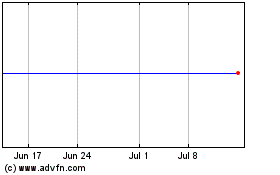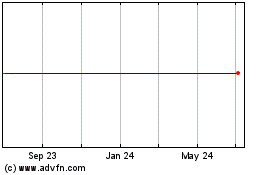By Jacquie McNish and Judy McKinnon
TORONTO -- Canadian fertilizer giants Agrium Inc. and Potash
Corp. of Saskatchewan Inc. confirmed plans to merge on Monday, in a
deal that would create a crop-nutrient giant valued at about $27
billion.
Joining forces with Agrium offers Saskatchewan-based Potash, the
world's largest fertilizer producer by capacity, protection against
volatile fertilizer prices, through Agrium's steadier retail
network. That system also would lower Potash's distribution costs,
while expanding fertilizer sales.
Agrium's retail arm, North America's biggest for fertilizer,
seeds and equipment, generates the bulk of the Calgary-based
company's sales. For Agrium, the deal would bolster its volume of
potash and other fertilizer ingredients.
Potash prices have been under pressure since 2013, when Russian
producer Uralkali JSC pulled out of its sales partnership with
Belarusian Potash Co. Slowing demand from emerging markets amid a
flood of supply has prompted merger discussions in the fertilizer
sector.
Agrium CEO Chuck Magro said in an interview that he first
explored merger discussions with Potash's CEO Jochen Tilk last year
as they sought opportunities to lower costs.
Mr. Magro said Potash is the "right partner" because of the
potential for significant cost reductions. "We're going to be much
more able to manage the storms in the commodity market," he
said
Agrium also held preliminary talks with Minnesota nutrient
producer Mosaic Co. in early 2016, but the discussions were
unsuccessful, according to people familiar with the matter.
Spokespeople for both companies declined to comment on those
talks.
The merger between Potash and Agrium would be the latest in a
series of global farming-sector deals. Those include the pending
merger of Dow Chemical Co. and DuPont, and China National Chemical
Corp.'s planned takeover of Swiss pesticide and seed company
Syngenta AG.
U.S. lawmakers said last month that they plan to hold a hearing
to examine this wave of mergers, saying the deals potentially could
reduce competition and lead to higher prices.
Potash shareholders would own about 52% of the new company and
Agrium shareholders would own about 48%. The two have a current
combined market capitalization of about $27 billion. The merged
company would have annual revenue of nearly $21 billion.
The Potash-Agrium tie-up is expected to face scrutiny from
antitrust regulators in the U.S. and Canada, among others,
concerning the combined companies' North American share of global
potash production capacity, analysts say. The two together would
control 23% of global production capacity, but 60% or more of North
American capacity, ahead of Mosaic and Intrepid Potash, National
Bank said in a note ahead of Monday's announcement.
Mr. Magro, who is to become CEO of the new company, said he is
"highly confident" the proposed merger won't trigger antitrust
issues. He said the potash market has become very competitive with
the emergence of new producers, and there is very little overlap in
the companies' nitrogen and phosphate operations.
The deal likely would sow further unease among North American
farmers wary of reduced competition and higher prices as top seed
and pesticide developers pursue their own tie-ups.
Already grappling with a three-year slide in major crop prices,
some farmers are concerned that mergers between some of the world's
largest farm-supply companies will consolidate pricing power among
fewer players and lead to higher costs at a time when farmers are
scrimping to eke out profits.
Fertilizer accounts for about one-fifth of corn farmers' total
costs, and about 7% for soybeans, according to the U.S. Agriculture
Department.
The companies estimated the deal would generate up to $500
million in annual operating synergies, and the company would employ
about 20,000.
Agrium has more than 1,200 retail outlets, mostly located in
Canada and North America, and sells a little more than 10% of the
nitrogen, phosphate and potash it manufactures to industrial
customers. The rest goes to retail customers.
Potash's Mr. Tilk will be executive chairman of the combined
company, which will be based in Saskatoon, Potash's current
headquarters. However, it will maintain corporate offices in
Calgary.
Potash sales have been hurt by Brazil's slumping currency, which
undercut demand from one of the world's big consumers of the
fertilizer. More recently, prices also were hurt by delays in the
signing of supply contracts with China and India, two of the other
largest fertilizer markets.
Both companies say, though, there are signs pointing to
increased-volume sales of potash through the rest of the year.
Outside of North America, Potash and Agrium sell the crop nutrient
through Canpotex, a Saskatchewan-based exporter that also includes
rival Mosaic Co.
Under the agreement, Potash shareholders would receive 0.4
common share of the new company for each common share they own and
Agrium shareholders would receive 2.23 common shares of the new
company for each common share of Agrium they own.
On Monday afternoon, Agrium shares were down 2.5%, trading in
New York at $92.80, and Potash shares were down 1.2%, trading at
$16.76.
The companies, which first announced they were in preliminary
discussions late last month, said they expect the deal to close in
mid-2017.
Jacob Bunge contributed to this article
Write to Jacquie McNish at Jacquie.McNish@wsj.com and Judy
McKinnon at judy.mckinnon@wsj.com
Corrections & Amplifications: On Friday, Agrium shares
closed at $124.14 Canadian dollars ($94.69) and Potash shares
closed at C$22.14. An earlier version of this article incorrectly
switched the companies' share prices.
(END) Dow Jones Newswires
September 13, 2016 02:48 ET (06:48 GMT)
Copyright (c) 2016 Dow Jones & Company, Inc.
Agrium (NYSE:AGU)
Historical Stock Chart
From Mar 2024 to Apr 2024

Agrium (NYSE:AGU)
Historical Stock Chart
From Apr 2023 to Apr 2024
